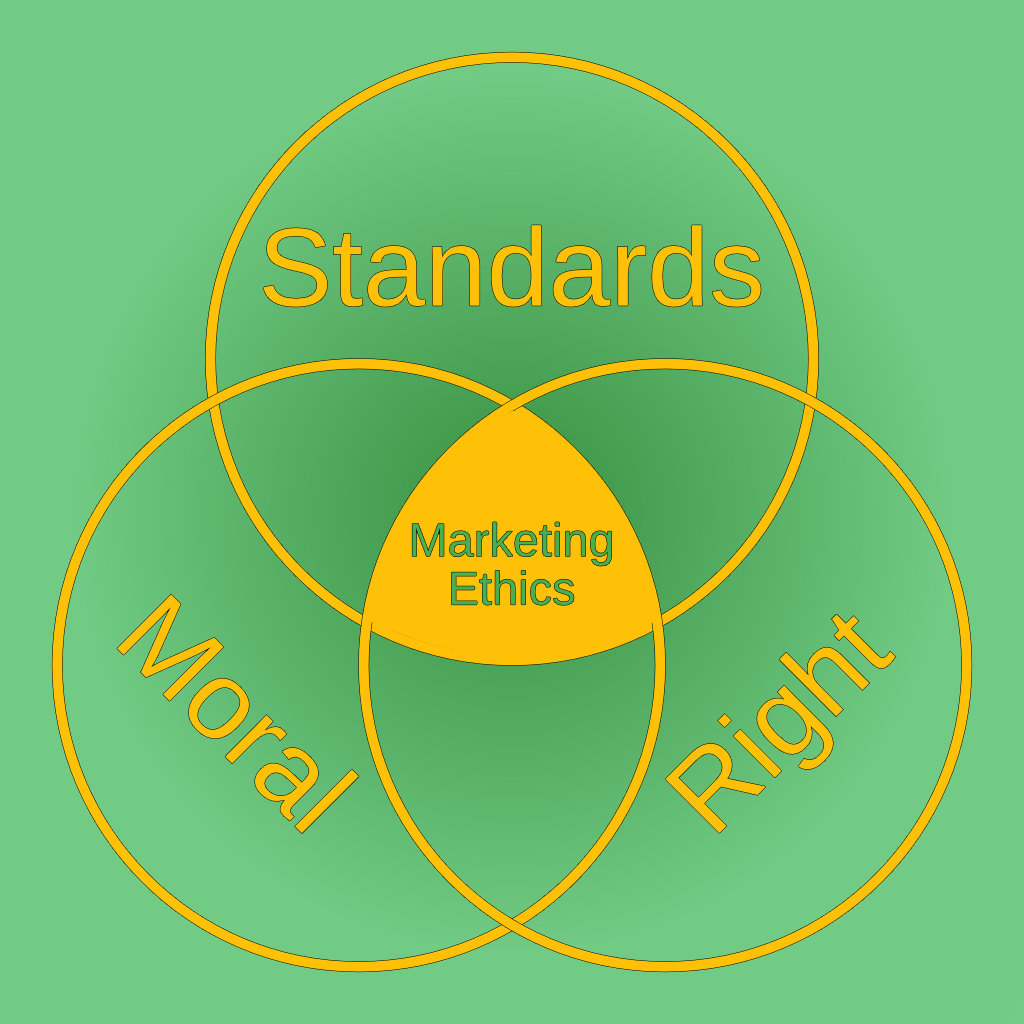Explaining The Ethics Of Marketing
Marketing is an essential component of business growth and success. It helps companies reach their target audience, increase brand visibility, and boost sales. However, marketing practices are often subject to scrutiny, with concerns raised about the impact they have on consumers and society as a whole.
This article will explore the ethics of marketing, the importance of social responsibility, and how businesses can balance their marketing goals with ethical considerations.
What Is Marketing Ethics?
Marketing ethics refers to the moral principles and values that guide the marketing activities of businesses.
It involves considering the impact of marketing practices on consumers, society, and the environment. Ethical marketing aims to balance the needs of the business with the well-being of its stakeholders, including customers, employees, and the wider community.
Looking for expert guidance on ethical marketing practices? Check out Marx Communications for tips and strategies toimprove your brand reputation and build customer trust.
The Importance Of Social Responsibility In Marketing
Social responsibility is an integral part of ethical marketing. It involves considering the impact of marketing practices on the wider community and the environment. Socially responsible marketing is about creating value for customers while minimizing the negative impact on society and the environment.
Businesses that prioritize social responsibility are more likely to build long-term relationships with customers, enhance brand reputation, and create a positive impact on society. Socially responsible marketing can also help businesses differentiate themselves from their competitors, build customer loyalty, and attract new customers.

The Importance of Ethical Marketing
Ethical Considerations In Marketing
Businesses must consider the following ethical considerations when developing marketing strategies:
Honesty And Transparency
Marketing messages should be truthful, accurate, and not misleading. Businesses must avoid making false claims or exaggerating the benefits of their products or services.
They should also be transparent about any potential risks or limitations associated with their products or services.
Respect For Consumer Privacy
Businesses must respect the privacyof their customers and protect their personal information.
They should also provide clear and concise privacy policies and obtain explicit consent before collecting, using, or sharing any personal information.
Fairness And Non-Discrimination
Marketing practices should be fair and non-discriminatory. Businesses should avoid targeting vulnerable or disadvantaged groups, such as children or low-income individuals, with misleading or deceptive marketing messages.
Environmental Sustainability
Businesses should consider the environmental impact of their marketing activities. They should prioritize environmentally sustainable practices, such as using recycled materials, reducing waste, and minimizing carbon emissions.
Balancing Business Goals With Ethical Considerations
Businesses often face a dilemma when it comes to balancing their marketing goals with ethical considerations. While businesses have a responsibility to maximize profits and drive growth, they must also consider the impact of their actions on society and the environment.
To balance business goals with ethical considerations, businesses can take the following steps:
Develop A Code Of Ethics
Businesses should develop a code of ethics that outlines the principles and values that guide their marketing activities. The code of ethics should be communicated to all employees and stakeholders, and regular training should be provided to ensure compliance.
Conduct Ethical Reviews
Businesses should regularly review their marketing practices to ensure they align with ethical considerations.
This can involve conducting surveys or focus groups to gauge consumer perception and conducting environmental impact assessments to minimize the environmental impact of marketing activities.
Implementing Ethical Marketing Practices
To implement ethical marketing practices, businesses can take the following steps:
Understand The Impact Of Marketing
Businesses must understand the impact of their marketing practices on consumers, society, and the environment. This can involve conducting market research to understand consumer needs and preferences, as well as identifying potential risks associated with marketing activities.
Develop Ethical Guidelines
Businesses should develop ethical guidelines that outline the principles and values that guide their marketing practices. The guidelines should be communicated to all employees, and regular training should be provided to ensure compliance.
Be Transparent
Businessesshould be transparent about their marketing practices, including the benefits and limitations of their products or services. This can involve providing clear and concise product descriptions, pricing information, and termsand conditions.
Avoid Deceptive Practices
Businesses should avoid using deceptive marketing practices, such as making false claims or exaggerating the benefits of their products or services. They should also avoid using fear tactics or other forms of manipulation to influence consumer behavior.
Protect Consumer Privacy
Businesses should protect the privacy of their customers and avoid collecting or using personal information without explicit consent. They should also provide clear and concise privacy policies that explain how personal information is collected, used, and shared.
Consider Environmental Impact
Businesses should consider the environmental impact of their marketing practices and prioritize environmentally sustainable practices. This can involve using recycled materials, minimizing waste, and reducing carbon emissions.
Collaborate With Stakeholders
Businesses should collaborate with stakeholders, including customers, employees, and the wider community, to develop marketing strategies that balance business goals with ethical considerations.
This can involve consulting with stakeholders on marketing messages, using customer feedback to improve marketing practices, and engaging with the community to understand their needs and concerns.
Monitor And Evaluate Ethical Marketing Practices
Implementing ethical marketing practices is an ongoing process that requires monitoring and evaluation to ensure compliance and effectiveness. Businesses can take the following steps to monitor and evaluate their ethical marketing practices:
Conduct Regular Audits
Businesses should conduct regular audits of their marketing practices to identify any potential ethical issues. This can involve reviewing marketing materials, sales processes, and customer interactions to ensure compliance with ethical guidelines.
Collect Customer Feedback
Businesses should collect customer feedback on their marketing practices to understand how customers perceive their brand and whether their marketing practices align with customer values. This can involve using surveys, focus groups, or social mediamonitoring to gather customer feedback.
Measure Impact
Businesses should measure the impact of their marketing practices on consumers, society, and the environment.
This can involve tracking key performance indicators (KPIs) such as customer satisfaction, social media engagement, and environmental impact to evaluate the effectiveness of their ethical marketing practices.
Take Action
Businesses should take action to address any ethical issues identified through audits or customer feedback. This can involve revising marketing materials, updating ethical guidelines, or providing additional training to employees.
Communicate Results
Businesses should communicate the results of their monitoring and evaluation efforts to stakeholders, including customers, employees, and investors. This can help build trust and transparency and demonstrate the business's commitment to ethical marketing practices.
By monitoring and evaluating their ethical marketing practices, businesses can continuously improve their marketing strategies and build a strong reputation as a socially responsible corporate citizen.
It also helps businesses identify potential ethical issues before they become major problems and take corrective action to address them.
Ultimately, implementing ethical marketing practices is a win-win situation for businesses and society, as it helps create value for customers while minimizing the negative impact on the environment and society.

Ethical marketing examples: Ethical Marketing
People Also Ask
What Are The Ethics Of Marketing?
The Ethics Of Marketing Are The Principles And Guidelines That Businesses Should Follow When Promoting Their Products Or Services.
Which Is An Example Of Ethics In Marketing?
An example of ethics in marketing is the use of truthful and accurate advertising that does not mislead or deceive customers.
Why Are Ethics Important In Marketing?
Ethics are important in marketing because they help businesses build trust and credibility with customers, create a positive brand reputation, avoid legal issues, and promote sustainability and social responsibility.
Conclusion
In conclusion, ethical marketing is essential for businesses that want to build long-term relationships with customers, enhance brand reputation, and create a positive impact on society.
By implementing ethical marketing practices, businesses can balance their marketing goals with social responsibility, build customer loyalty, and attract new customers. Ultimately, ethical marketing is about creating value for customers while minimizing the negative impact on the environment and society.
By following ethical guidelines, businesses can achieve their marketing objectives while also being responsible corporate citizens.
